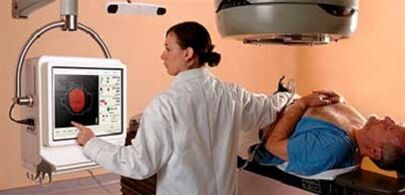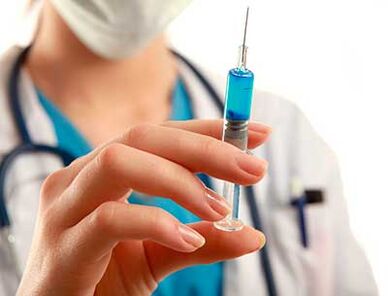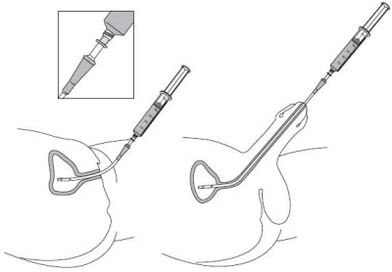To eliminate the inflammatory changes in the tissues of the prostate gland, the urologist often prescribes certain drugs for the treatment of prostatitis.
Do not think that a modern pharmaceutical agent will help every man suffering from the disease to cope with the disease.
The choice of medication depends on many factors, and all therapy should be selected after a thorough examination to quickly restore and prevent the transition of acute prostatitis to a chronic form.
What drugs are used in the treatment of prostatitis
Medicines are always needed to treat acute prostatitis. Without their use, it is impossible to completely stop the inflammation and restore prostate function.

The man must go through the whole course of therapy, the disappearance of symptoms does not indicate a complete cure.
Therefore, if you stop taking the drug, it will be the main reason for the recurrence of chronic inflammation of the prostate gland.
Drugs are selected on the basis of information obtained during the examination and can be prescribed in combination therapy with herbal and folk remedies.

The doctor should take into account the detection of a certain microflora in the smear, clinical signs and complaints of the patient, the information obtained during the instrumental examination of the prostate.
Based on this, antibacterial, anti-inflammatory and restorative treatment is selected.
Depending on the course of the disease, all selected drugs are prescribed in the form of injections, tablets. Sometimes instillations are used.
Injectable drugs
It is usually prescribed by a urologist in the acute inflammatory phase, and these are the most common antibiotics.
Injectable drugs allow you to achieve the desired therapeutic effect quickly, but injections for prostatitis are given in a hospital setting.
Anesthetic injections can also be used for severe pain.

Pills
It can be used for a long time to treat prostatitis. Tablet medications include non-steroidal anti-inflammatory drugs, antispasmodics, and muscle relaxants.
The use of drugs that improve metabolism is also important in prostatitis.
Recently, bioregulatory peptides have been frequently prescribed to improve prostate cell renewal.
Instillations
This is the introduction of a drug solution into the urethra with a specific mechanism of action.
The introduction of the drug into the urethra provides the earliest elimination of bacterial flora and allows faster recovery of the inflamed mucous membrane.

Candles
Another dosage form for the treatment of prostatitis. Candles for prostatitis are used as painkillers and anti-inflammatory drugs.
You can also replace the mammary glands with microclycers, the actions of which are aimed at improving microcirculation in the tissues of the prostate gland.
Only a doctor can decide which dosage forms to use to treat a particular patient.
Some sick men cannot do without injections, while others can be treated with pills. The choice of therapy depends on the stage of the disease.
In the chronic phase, tablets are mainly used, but often have to be drunk for a long time.
The most popular and widely used drugs for prostatitis
When choosing a therapy regimen for the patient, the urologist takes into account all possible contraindications and sensitivity of the detected pathogens to drugs.
In most cases, acute prostatitis is still a bacterial infection, so treatment begins with the use of antibacterial drugs.
However, the doctor also chooses other drugs that improve blood circulation, relieve spasms and help the cells.
That is, the whole treatment consists of the simultaneous use of several drugs with a different mechanism of action.
Medications for bacterial prostatitis
If the prostate is found to be caused by bacteria, antibiotics should be prescribed.
First of all, they choose drugs that have a wide range of effects, that is, they can be destroyed by several types of microbes at once.
- Cephalosporins are usually given by injection. Medications are given intramuscularly or intravenously for at least 10 days;
- Penicillins are used in tablet form in a specially selected dose;
- If there is an intolerance to antibiotics of other groups, fluoroquinols are used. The drug can be used for two weeks.
Treatment of acute prostatitis
In the case of acute prostatitis, in addition to antibacterial drugs, non-steroidal anti-inflammatory drugs and antispasmodics are needed.
Under their influence, inflammation decreases faster and pain with anxiety disappears.
- Antispasmodics are available in both injections and tablets. It is administered intramuscularly for pain in a hospital setting;
- Nonsteroidal anti-inflammatory drugs can also be used in injections and tablets. If a man has additional stomach ailments, it is better to use injectable drugs, because this group of drugs has a negative effect on the mucous membrane of the body. Often, injections or suppositories are currently used.
Treatment of viral prostatitis
Viral prostatitis is rare. In addition to the effect of the virus in the development of the disease, in this case plays a role in the reduction of male immunity.
The causative agents of this form of the disease include herpes simplex virus, influenza virus, human papillomavirus infection.
In addition to anti-inflammatory and microcirculatory substances, the doctor prescribes antiviral drugs to treat viral prostatitis.
You also need funds that increase immunity.
Drugs that relieve muscle spasms
In the treatment of prostatitis, muscle relaxants are needed to reduce the tone of tense muscles. This reduces pain and makes it easier to urinate.
Drugs that improve blood circulation
With any prostatitis, circulatory disorders are always detected, which leads to stagnation and does not allow the regeneration of body tissues.
Therefore, it is necessary to use drugs that improve blood circulation in the complex treatment.
A drug with horse chestnut fruit extract is used to normalize the filling of blood vessels.
Other drug groups
As already mentioned, the choice of treatment by the doctor is made on the basis of a lot of information found during the examination. And therefore, the treatment regimen of a patient with prostatitis may differ significantly from the treatment regimen of another patient.
In the case of prostatitis, immunomodulators are often prescribed in addition, under the influence of which the work of the immune system improves faster.
In the chronic phase of the disease, an injectable drug is often used, which strengthens blood vessels, improves cell renewal and has a positive effect on urination.
In the treatment of prostatitis, this drug is repeatedly used in 5-6 injection courses.
Biological supplements in tablet form are popular.
These drugs contain a micronutrient complex that has a positive effect on prostate tissue.
Summary
Treatment of prostatitis should not be an independent choice. You should not just go to the pharmacy and choose medication to restore prostate function.
This approach leads to the transition to acute chronic prostatitis and is one of the causes of future sexual dysfunction.
An examination by a doctor will allow you to accurately determine the cause of the disease and eliminate it with the help of a certain group of drugs.
In the process of drug therapy, the urologist constantly monitors the changes that occur, and therefore can adjust the medication to increase the effectiveness of treatment.
Every man should remember that the pain and discomfort when urinating is enough to go to the hospital.
Timely treatment of prostatitis with drugs and medications will completely free the patient from many troubles in the future.



























